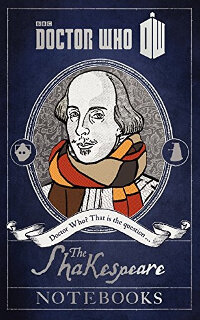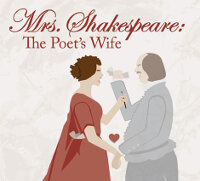Justin Richards
New York: HarperDesign, 2014
Doctor Who, the BBC’s time travelling alien from Gallifrey, has passed through the lives of countless people during his various regenerations. In the recently discovered Notebooks Shakespeare attempted to document the appearances of the “mysterious” Doctor in his life and in his writings. Compiled in 1599 after the events surrounding the loss of Love’s labour’s won, this “book of scraps” includes early drafts of many of his plays (among them an extensive group of unused scenes from Macbeth featuring the second Doctor and his companions Jaime and Zoe), new sonnets, and other material that reveal previously unknown ties between Shakespeare and the Doctor. The Notebooks show Shakespeare as a willing intellectual partner with the Doctor, using his fleeting brushes with the Doctor for ideas and characters (even if they were ultimately excluded). -TH



